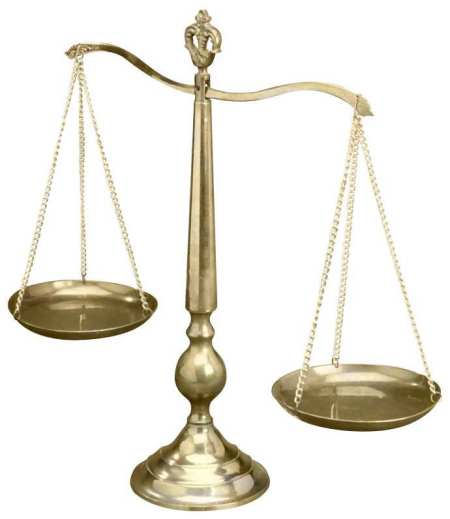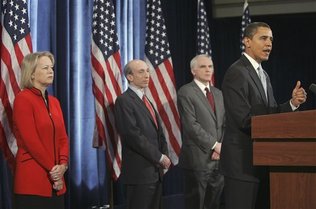 In teaching this lesson to my adult Sunday school class, I entitled it “The Unhappy Christian,” with the subtitle of “The Unfairness of Fair.” We concede the fact that a general sense of unhappiness prevails in our society at large, but why do we have so many believers in the church who are unhappy? Shouldn’t joy, peace and love characterize the state of mind for Christians? Shouldn’t we have supreme cause to rejoice when we reflect on our redeemed souls, our deliverance from the bondage of the world and our justification from sin? Yet, we see so much anger, bitterness, jealousy and depression among the very people whom God has rescued from a corrupt world. What’s going on, anyway?
In teaching this lesson to my adult Sunday school class, I entitled it “The Unhappy Christian,” with the subtitle of “The Unfairness of Fair.” We concede the fact that a general sense of unhappiness prevails in our society at large, but why do we have so many believers in the church who are unhappy? Shouldn’t joy, peace and love characterize the state of mind for Christians? Shouldn’t we have supreme cause to rejoice when we reflect on our redeemed souls, our deliverance from the bondage of the world and our justification from sin? Yet, we see so much anger, bitterness, jealousy and depression among the very people whom God has rescued from a corrupt world. What’s going on, anyway?
This is what’s going on: We operate under false assumptions. We assume rights that we do not possess, we claim guarantees that God never promised us and we hold expectations about life that are unrealistic. When these expectations fail to materialize, we waste untold amounts of emotional energy by trying to make them happen anyway or else adopting an aggrieved attitude and blaming anyone we can find to blame, including God. A school teacher once told a smart-alecky kid, “I give you an inch and you think you’re a ruler!” God gives us more happiness than we deserve and, then, rather than showing him our gratitude, we try to push him off of the throne and put ourselves in the reigning position.
Years ago, those who attended Bill Gothard’s Institute in Basic Youth Conflicts, remember that he explained anger by referring to driving on the highway. Ever wonder why we get upset when someone cuts in front of us? Because, we think we had the exclusive right to the spot just ahead that the offending driver just took over. But, wait a minute. Aren’t you driving on a public highway? Do you have your name on that spot? Ludicrous, of course. Gothard said that the best way to resolve the conflict is to give up your claim to that spot. You never owned it in the first place, and the other driver has just as much right to it as do you. Once you realize that you were not robbed of a personal possession, you lose your reason for anger.
In my observation, three major points of understanding emerge from our examination of fairness. Each of them is based on false claims to non-existent rights. We must make a conscious effort to rid ourselves of these notions. In addition to causing us much inner conflict and anxiety, they prevent us from experiencing the presence of God in a way he truly designed for us. Think of it as making a bad, non-refundable purchase: not only do you fail to get what you wanted; you now lose your ability to buy what you do want. Insisting on fairness is such a two-edged sword.
The Goal of Fairness Is Control
First, the concept of fairness has at its root a human attempt to control God. There are certain things that God is “supposed” to do; and certain things he has no right to do, as least as far as we are concerned. For example, a referee in a basketball game should operate according to an official set of rules that apply equally to all players. We realize that in individual calls a referee applies the rules the way he see fit, but if he deviates too far from a common understanding of those rules, he immediately hears about it from one side or the other. He cannot make up his own rules as he goes along. When they disagree with him, partisan fans berate him, insult him and scream at him to be fair. They hope they can influence his calls by appealing to fairness.
When life sends us into a crisis, we feel as though God has violated a set of eternal principles which ought to govern the way he makes decisions. “God! You can’t do that!” Many of the Psalms of David illustrate this propensity of man to complain against God. While David never charged God foolishly, he was not bashful about expressing his grievances, his despair, and his perception that others were treated better than he. The twenty-second Psalm serves as a poignant example of his feelings:
“God, God…my God! Why did you dump me miles from nowhere? Doubled up with pain, I call to God all the day long. No answer. Nothing. I keep at it all night, tossing and turning.
“And you! Are you indifferent, above it all, leaning back on the cushions of Israel’s praise? We know you were there for our parents: they cried for your help and you gave it; they trusted and lived a good life. And here I am, a nothing—an earthworm, something to step on, to squash.
“Everyone pokes fun at me; they make faces at me, they shake their heads: “Let’s see how God handles this one; since God likes him so much, let him help him!” And to think you were midwife at my birth, setting me at my mother’s breasts! When I left the womb you cradled me; since the moment of birth you’ve been my God. Then you moved far away and trouble moved in next door. I need a neighbor.” (Psalm 22:1-11, The Message)
Fairness serves as a sort of trump card, our lever on the conscience of God. After all, what could be more righteous, more just and more deserved by every person in existence than fairness? But God will not come under our control. He will not be confined in the box of finite human understanding. We would do well to remember the incident in which Daniel pronounced a judgment on King Nebuchadnezzar. Without equivocation, he couched this judgment in terms of the sovereignty of God. “This is the interpretation, O king, and this is the decree of the most High, which is come upon my lord the king…till thou know that the most High ruleth in the kingdom of men, and giveth it to whomsoever he will.” Daniel 4:24-25. Nebuchadnezzar and all the Princes of Babylon had to realize that they did not control the one, true and living God in like they controlled their tribal gods. They fashioned their false gods out of their own imaginations. They assigned parameters of behavior and notions of right and wrong to their gods. They also created more gods if they felt that the ones they had were inadequate. Whenever they received distasteful answers from their false gods (through their high priests) they simply slew the priests and recruited new ones.
Jehovah God, of course, permits no such control. Fairness, therefore, is a theological question. God cannot be God if he must submit to our immature human thinking.
Fairness Has No Place in Divine Decisions
Second, fairness, as a concept, does not exist in the economy of God. Spawned in the vortex of our human existence, fairness is a strictly human value. The angelic beings had no expectation of fairness from their Creator God. The physical creation did not come into being according to some arbitrary rules of fairness. God does not now, nor has he ever used the premise of fairness to decide any course of divine action. It is not a human prerogative to search for it, insist on it or impose it on ourselves or others. God enjoys transcendence over all human opinions and judgments. The Apostle Paul must have been aware of how difficult this attribute of God seemed in human interaction because he makes it a theme of Romans chapter nine.
He writes, “For this was how the promise was stated: “At the appointed time I will return, and Sarah will have a son.” Not only that, but Rebekah’s children had one and the same father, our father Isaac. Yet, before the twins were born or had done anything good or bad—in order that God’s purpose in election might stand: not by works but by him who calls—she was told, “The older will serve the younger.” Just as it is written: “Jacob I loved, but Esau I hated.” What then shall we say? Is God unjust? Not at all! For he says to Moses, “I will have mercy on whom I have mercy, and I will have compassion on whom I have compassion.” (Romans 9:9-15 NIV)
“Is God unjust?” We find ourselves more in agreement with Paul’s rhetorical question than with his supplied answer. God loved Jacob and hated Esau? Yes. The Bible clearly says so. Close study of the Word of God bears out the reasoning behind God’s choices, but man still chokes on the idea that God would or could be so prejudiced. Everything we have ever believed about fairness flies out the window when contemplating this scenario. Yet, we are faced with the facts as they are given.
Why do we insist on fairness? Do we actually believe that everyone deserves equal treatment? Probably not. But, given our humanness, we have no other choice. In the world of human interaction, we operate in a limited field of vision and with limited understanding and prescience. If we knew everything we would like to know, we could drop the fairness routine and give people their just desserts. In fact, this is the very point that Paul makes about the will of God: God exercises his divine sovereignty when making decisions. “For the Scripture says to Pharaoh: “I raised you up for this very purpose, that I might display my power in you and that my name might be proclaimed in all the earth.” Therefore God has mercy on whom he wants to have mercy, and he hardens whom he wants to harden.”
Paul explores the question even further. “One of you will say to me: “Then why does God still blame us? For who resists his will?” But who are you, O man, to talk back to God? “Shall what is formed say to him who formed it, ‘Why did you make me like this?’” Does not the potter have the right to make out of the same lump of clay some pottery for noble purposes and some for common use? It is hard to resist such persuasive reasoning.
Our Adamic nature wants to do exactly what the apostle intimates. We want to rise up and interject ourselves into the thought processes of God. Absolute sovereignty rubs us the wrong way.
Yet, just because God is sovereign does not mean he acts cavalierly. God formulates his plans out of his infinite wisdom and his eternal purposes. Paul’s treatise in Romans completes this thought. “What if God, choosing to show his wrath and make his power known, bore with great patience the objects of his wrath—prepared for destruction? What if he did this to make the riches of his glory known to the objects of his mercy, whom he prepared in advance for glory—even us, whom he also called, not only from the Jews but also from the Gentiles?” (Romans 9:17-24). In the final analysis, we must always understand that God knows best. He not only has the sovereign right to act as he sees fit, he also possesses the supreme wisdom and foresight to justify his decisions.
Fairness Precludes a Unique Relationship with God
After we concede that we have no control over God, and after we adjust our thinking to the wisdom and sovereignty of God, we are still left with the question of why. What possible benefit do we derive from this understanding of God? The end point to which our journey inevitably leads us is a unique relationship to God. God does not homogenize his people into a dull sameness, but in uniqueness.
Thus, we all have a different pathway to follow. This is the message of John 21. “Then Peter, turning about, seeth the disciple whom Jesus loved following; which also leaned on his breast at supper, and said, Lord, which is he that betrayeth thee? Peter seeing him saith to Jesus, Lord, and what shall this man do? Jesus saith unto him, If I will that he tarry till I come, what is that to thee? follow thou me.” John 21: 20-22. Jesus came close to saying, “It’s none of your business.” His next statement is profound. “Follow thou me.” Herein lies the secret of discipleship: First, follow Christ. But it is even more personal than that. You follow Christ! Embrace the uniqueness of your relationship with Christ alone.
In the same vein, the Apostle Paul cautions us not to concern ourselves with each other’s pathway. “For we dare not make ourselves of the number, or compare ourselves with some that commend themselves: but they measuring themselves by themselves, and comparing themselves among themselves, are not wise. But we will not boast of things without our measure, but according to the measure of the rule which God hath distributed to us, a measure to reach even unto you.” 2 Corinthians 10:12-13. When we engage in comparisons with others, or when we judge ourselves or others relative to our lot in life, we plunge into waters too deep for our shallow minds. This means that the entire range of troubles that befalls others may call for our sympathy, encouragement and ministry, but it does not call for our judgment. That pathway belongs exclusively to the individual that travels it.
Ultimately, the benefit we derive from this unique relationship with God is a unique revelation of God. Whenever we opt for a so-called fairness principle, we cheat ourselves out of a personal revelation of God that he has specifically designed for us alone. Perhaps re-reading the 23rd Psalm will reinforce this divine purpose. Take special note of the personal pronouns used in the passage.
“The LORD is my shepherd; I shall not want. He maketh me to lie down in green pastures: he leadeth me beside the still waters. He restoreth my soul: he leadeth me in the paths of righteousness for his name’s sake. Yea, though I walk through the valley of the shadow of death, I will fear no evil: for thou art with me; thy rod and thy staff they comfort me. Thou preparest a table before me in the presence of mine enemies: thou anointest my head with oil; my cup runneth over. Surely goodness and mercy shall follow me all the days of my life: and I will dwell in the house of the LORD for ever.”
The scriptures teem with references to this exclusive relationship we can have with God. From the voice of God in the garden of Eden to the revelation of God’s grace to Noah; from the presence of God that David felt in the hinterlands watching the sheep to the special care God took of Elijah in the cave of his depression; from one lost sheep rescued by the shepherd in Luke chapter fifteen to the Savior knocking on the door of any man to sup with him, God offers each of us an intimate and unique relationship with him.
Think of it! In heaven, Noah will have a story to tell that no one else can rival. Abraham, Isaac, Jacob, Joseph, and on and on, will all have a different perspective on the infinite attributes of God. Do you think Daniel thought God unfair when he was cast into the lions’ den? I don’t think so. Instead, he recognized that he was about to see an aspect of God that no one else ever saw. Even if he God had permitted the lions to feast on him, there would have been a revelation of God to him that would have eclipsed any pain or suffering that he would have experienced. The only way we can come to this conclusion is to completely divest ourselves of the concept of fairness. This old hymn says it best.
It Is Well With My Soul
When peace like a river, attendeth my way,
When sorrows like sea billows roll;
Whatever my lot, Thou hast taught me to say,
It is well, it is well, with my soul.
It is well, with my soul,
It is well, with my soul,
It is well, it is well, with my soul.
Though Satan should buffet, though trials should come,
Let this blest assurance control,
That Christ has regarded my helpless estate,
And hath shed His own blood for my soul.
My sin, oh, the bliss of this glorious thought!
My sin, not in part but the whole,
Is nailed to the cross, and I bear it no more,
Praise the Lord, praise the Lord, O my soul!
And Lord, haste the day when my faith shall be sight,
The clouds be rolled back as a scroll;
The trump shall resound, and the Lord shall descend,
Even so, it is well with my soul.
-Horatio Spafford
 Friday, February 6, 2009 at 08:53PM
Friday, February 6, 2009 at 08:53PM  For most of my life, I have been a frequent customer in restaurants. I have been treated like a king in a few, like a peon in some, and like a pure business contact in most of them. What I have noticed over time is that when I walk into a restaurant, I am on their turf and I play by their rules. They basically tell me what to do, where to sit, what to eat and how I am going to be served.
For most of my life, I have been a frequent customer in restaurants. I have been treated like a king in a few, like a peon in some, and like a pure business contact in most of them. What I have noticed over time is that when I walk into a restaurant, I am on their turf and I play by their rules. They basically tell me what to do, where to sit, what to eat and how I am going to be served. 






